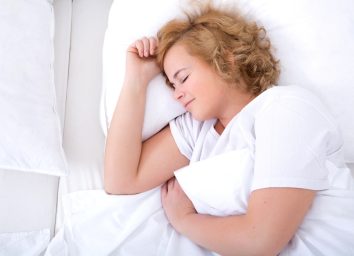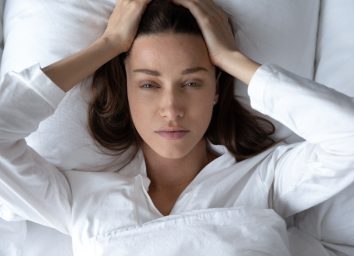This Red Flag Means You Need More Sleep, Study Says

Nowadays, many people will tell you they always feel tired. Such a statement may sound like hyperbole, but it's been an exhausting time for us all. The COVID-19 pandemic continues to keep millions up all night tossing and turning, and even when the sun is out, life is more complicated than it once was pre-pandemic.
Still, there's a big difference between needing a little extra shuteye and full-on sleep deprivation. You may be able to push aside feeling exhausted for a few hours here and there with a coffee or energy drink, but eventually, we all have to pay back our "sleep debt." So, how can you tell when it's time to stop procrastinating and start prioritizing sleep—especially when feeling tired is akin to feeling normal?
Well, fascinating research published in the Scientific Reports journal has uncovered a simple way to gauge just how badly an individual is in need of sleep. Read on to learn about this red flag indicating you need more sleep, and next, check out The 6 Best Exercises for Strong and Toned Arms in 2022, Trainer Says.
Wobbly walking is a major sign of sleep deprivation
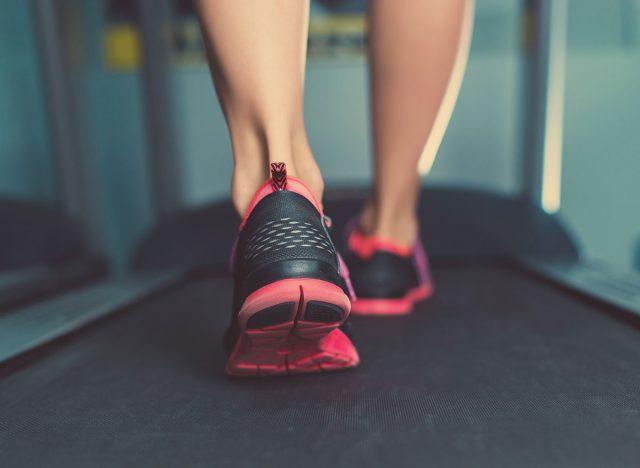
If you've noticed you've been dragging your feet while walking lately, or generally walking in a more wobbly, uneasy manner, it's likely time to take a nap ASAP. Researchers in this study analyzed a collection of college students and discovered that lack of adequate sleep influences how efficiently we can control our walking stride.
It's a common police tactic to task suspected drunk drivers with walking in a straight line, but you may want to conduct a similar self-test the next time you're debating between a nap or doing more activities. If your gait is uneasy and clumsy, it's time to stop what you're doing, and get some rest.
According to the study, the less sleep a specific college student was getting, the less bodily control they showed while completing a treadmill test. Students who stayed up all night right before the experiment showed the uneasiest walking patterns.
These findings, beyond just their practical use, are incredibly noteworthy. We've known for some time that lack of sleep will affect cognition and thinking skills, but this is among the first research projects to find sleep deprivation can even corrode a much less mentally taxing activity like walking.
"Scientifically, it wasn't clear that almost automatic activities like walking would be influenced by lack of sleep," explained Hermano Krebs, principal research scientist in MIT's Department of Mechanical Engineering.
Related: This Viral Tiktok Hack Shows How to Fall Asleep in 2 Minutes
Get extra shuteye when you can
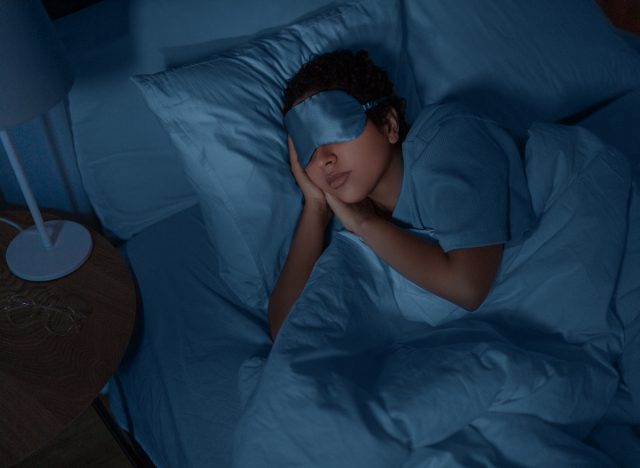
Importantly, the study also found that just a little bit of "sleep compensation" can go a long way. Students who generally didn't sleep as well during the week but were able to catch up on some sleep on weekends showed more control over their walking patterns than others who didn't get more Z's on Saturday and Sunday mornings.
"We also find that compensating for sleep could be an important strategy. For instance, for those who are chronically sleep-deprived, like shift workers, clinicians, and some military personnel, if they build in regular sleep compensation, they might have better control over their gait," Krebs noted.
While the message that "sleeping helps correct sleep deprivation" may sound fairly obvious, the real notable nugget of information here is that it doesn't even take a full seven hours of sleep. Get your extra shuteye whenever you can—take a few naps here or there, and if your schedule allows, hit the snooze button a few times per week.
Moreover, many of the students who slept in over the weekend didn't actually engage in the treadmill test until several days after sleeping in—and they still showed stronger gait/walking control than others. So even some extra shuteye gained days before sleep deprivation occurs can make a big difference.
"That's paradoxical," added lead study author Arturo Forner-Cordero of the University of São Paulo in Brazil. "Even at the peak of when most people would be tired, this compensating group did better, which we didn't expect."
"The results show that gait is not an automatic process, and that it can be affected by sleep deprivation," Krebs says. "They also suggest strategies for mitigating effects of sleep deprivation. Ideally, everyone should sleep eight hours a night. But if we can't, then we should compensate as much and as regularly as possible."
Related: Sleeping This Much Longer Will Help You Lose Weight, Says New Study
The research
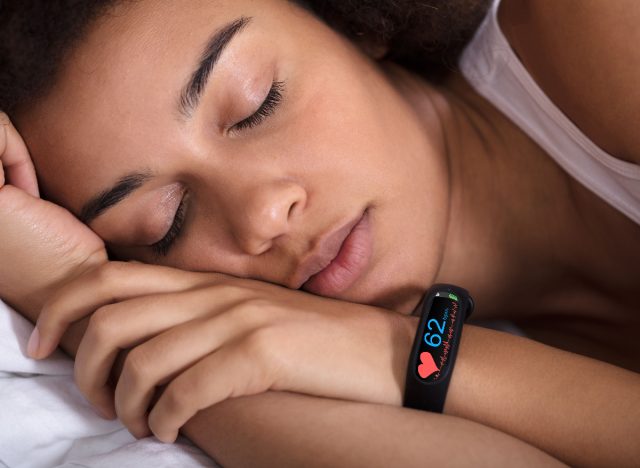
Forner-Cordero noticed that students appeared particularly exhausted around the end of each semester and just before finals. "So, we decided to embrace the situation," Forner-Cordero noted.
A group of Brazilian students were gathered for the study and asked to wear an activity-tracking watch for two full weeks. The baseline walking/sleeping data collected by those watches gave study authors insight into each student's usual daily sleep schedules.
On average, most students were getting only six hours of sleep each day (just short of the universally recommended seven to nine hours). Importantly, however, some students slept more during the weekends.
Just before the last day of the observation period, a portion of the students were asked to "pull an all-nighter" and stay awake all night in the local sleep lab. This subsection of participants was called the Sleep Acute Deprivation group (SAD).
After that 14th night passed, all participants were gathered together to take part in a treadmill exercise. Study subjects were instructed to walk while maintaining a steady speed, all while a metronome was played. The idea was for each student to walk in unison with the beat, but researchers also subtly sped up and slowed down the metronome during the exercise. All of this was recorded by a series of cameras focusing on the moment each subject's heel touched the treadmill, in comparison to the metronome's beat.
"They had to synchronize their heel strike to the beat, and we found the errors were larger in people with acute sleep deprivation," Forner-Cordero explained. "They were off the rhythm, they missed beeps, and were performing in general, worse."
Walking is manual, not automatic
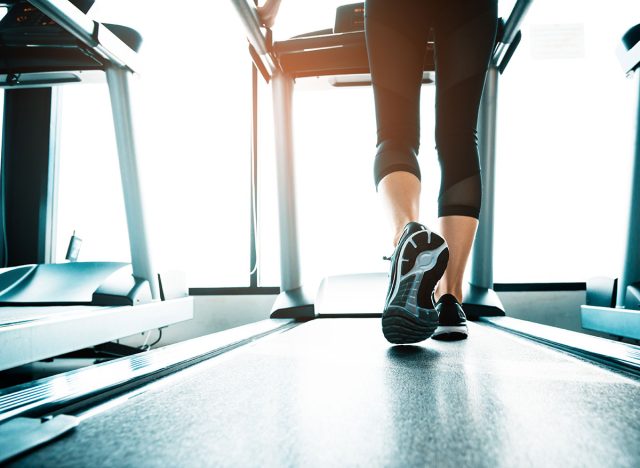
Historically, doctors and scientists alike have largely believed that walking is a virtually automatic process involving little neurological effort or control. In more recent years, however, science has pushed the research in a different direction.
For instance, Forner-Cordero and Krebs conducted a previous study that can be considered a precursor to this project. Similarly, subjects walked on a treadmill to the beat of a metronome. Without realizing what they were doing, the subjects changed their walking speeds to match the beat. That wouldn't happen if the brain wasn't involved in coordinating walking and movement.
"That suggested the concept of gait being only an automatic process is not a complete story," Krebs concluded. "There's a lot of influence coming from the brain."

